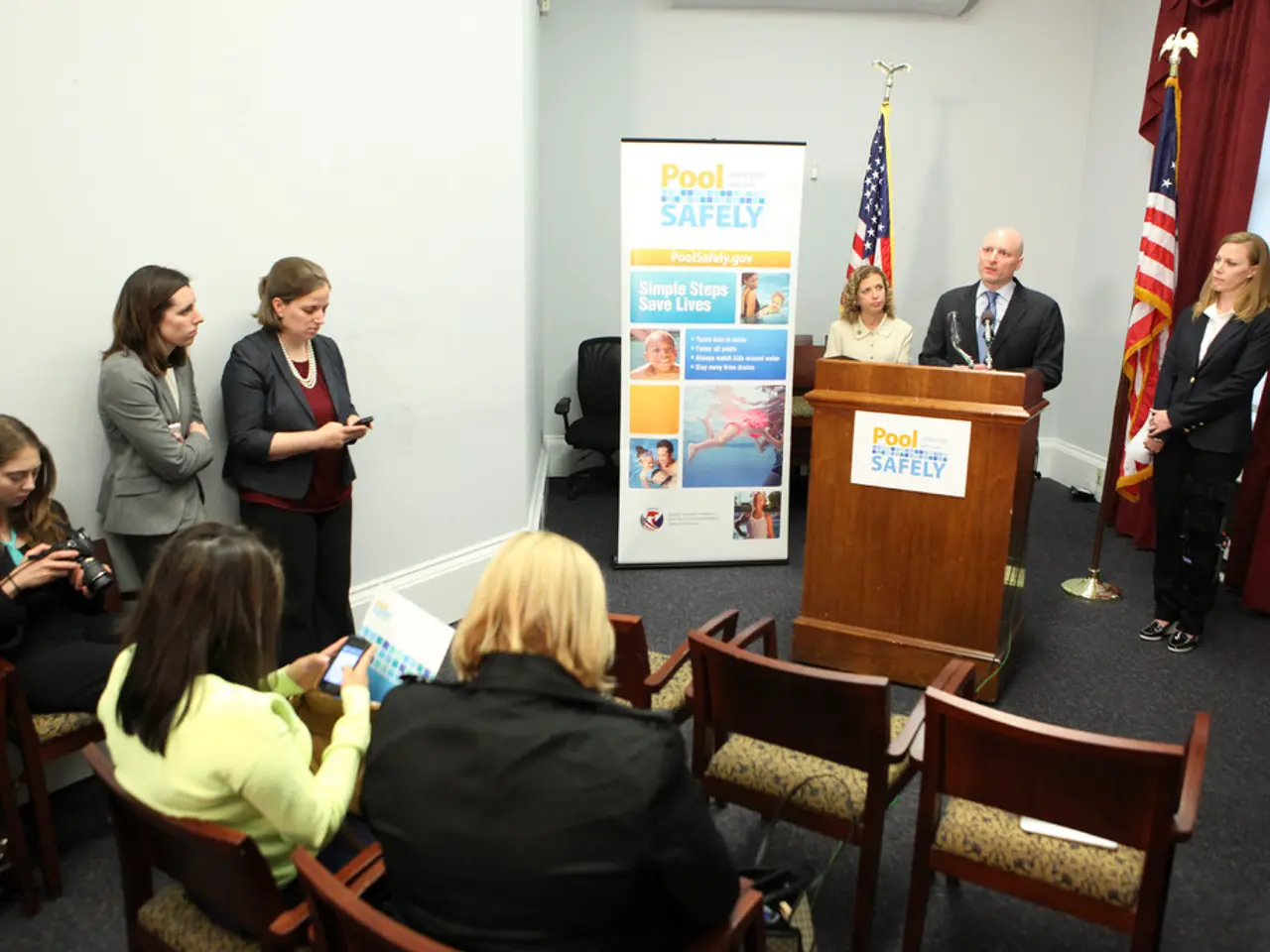Germany's Federal Parliament (Bundestag) convenes this week
The Federal Government's third Equality Report, titled "Shaping Digitalization in a Gender-Fair Manner," is set to be submitted to the Bundestag this week, emphasizing the importance of equal opportunities and support for women in the digital sector.
The report highlights several key challenges and opportunities, including the low participation of women in ICT and engineering, the need for digital literacy and access, and the necessity of gender-sensitive policies.
To address these issues, various support initiatives have been proposed:
- Financial and Entrepreneurial Support: Government-backed funding for women-led ICT businesses, tax incentives for gender-inclusive hiring practices, and targeted scholarships and training programs in emerging technologies like AI and cybersecurity aim to empower women entrepreneurs.
- Digital Inclusion and Infrastructure: Dedicated training centers focused on women's empowerment, improved mobile access, and digital tools for non-smartphone users are essential for digital inclusion.
- Mentorship and Public-Private Partnerships: Mentorship programs connecting young girls with successful women in tech, and partnerships between government, academia, and the private sector, are crucial for driving gender equality in ICT.
- Global Initiatives: Programs like the South Asia Regional Digital Initiative and Skill India Mission, as well as Indian Government initiatives like "Digital India" and "Startup India," aim to improve women's participation in the digital sector. International support from organizations like the European Investment Bank (EIB) is also vital.
Looking ahead, scaling digital inclusion, addressing socio-cultural barriers, and providing ongoing training and mentorship are crucial for sustaining and deepening the skills gained by women entrepreneurs.
In addition to these digital initiatives, the German Government is introducing a care bonus for care workers during the pandemic, amounting to one billion euros. The bonus will be divided, with 500 million euros for care workers in hospitals and 500 million euros for employees in ambulatory and stationary long-term care. Intensive care nurses will receive a higher amount in the care bonus.
The employee's allowance and the basic tax-free allowance will also be increased. The Fourth Corona Tax Relief Act, which includes these measures, will apply retroactively from January 1, 2022. The Act also proposes economic and social measures to support citizens and the economy in overcoming the economic consequences of the pandemic.
Moreover, the mandate for the German Armed Forces in the mission continues and can be extended upon request of the Federal Government until 30 April 2023. The German Armed Forces have been engaged in the EU mission EUNAVFOR MED IRINI since February 2020 within the framework of the United Nations arms embargo against Libya. The mission includes combating smugglers, curbing the illegal export of oil, and rescuing refugees at sea.
Structural factors such as lack of compatibility between family and career, insufficient social security, and gender stereotypes contribute to the underrepresentation of women in the digital sector. More support for women, better access to capital, and more visibility through campaigns are needed to address this issue. The Federal Government's report also covers discrimination-free algorithms as a topic, emphasizing the importance of learning AI systems not reflecting stereotypes or discriminatory structures.
The leadership of the Federal Anti-Discrimination Agency will be elected by the Bundestag for five years in the future on the proposal of the Federal Government as an independent Federal Commissioner for Anti-Discrimination and appointed by the Federal President. The Agency, established in 2006, offers legal advice for those affected by discrimination based on age, disability, gender, ethnic origin, religion, or sexual identity.
In conclusion, the Federal Government's efforts towards gender-fair digitization aim to ensure that women have equal opportunities and support in the digital sector. These efforts include increasing participation and retention, enhancing digital literacy, and promoting gender equality through various initiatives.
- The Federal Government's third Equality Report, focused on shaping digitalization in a gender-fair manner, highlights the importance of addressing structural factors such as lack of compatibility between family and career, insufficient social security, and gender stereotypes to increase women's participation in the digital sector.
- The Federal Government's policy-and-legislation initiatives, including financial and entrepreneurial support, digital inclusion and infrastructure, mentorship, and public-private partnerships, are crucial in promoting gender equity in the digital sector, as outlined in the third Equality Report titled "Shaping Digitalization in a Gender-Fair Manner."






